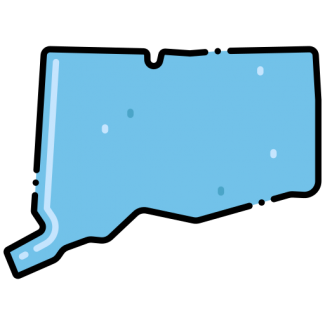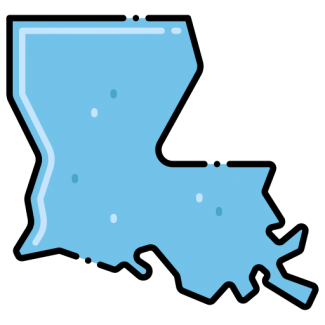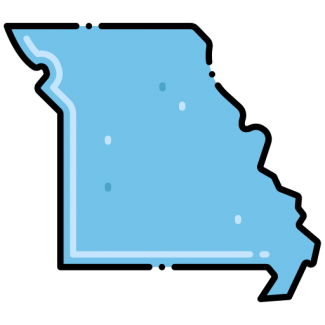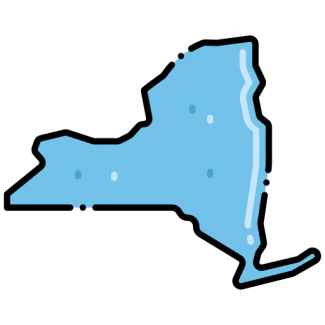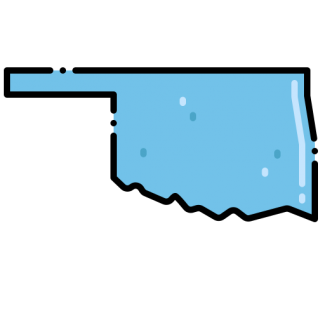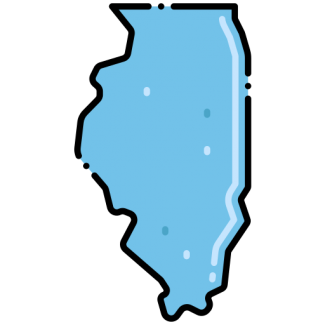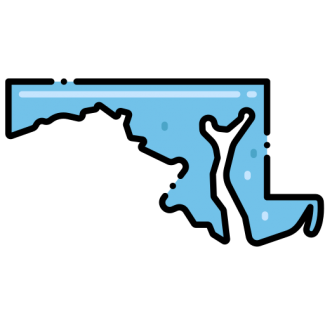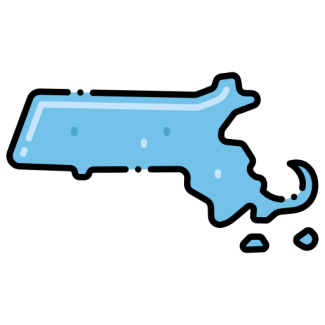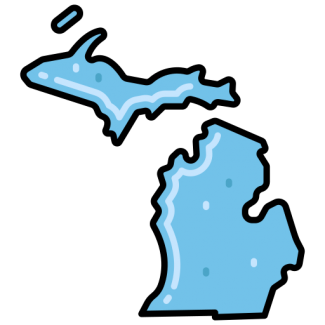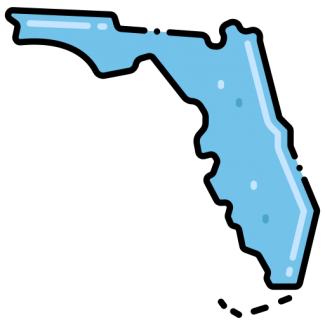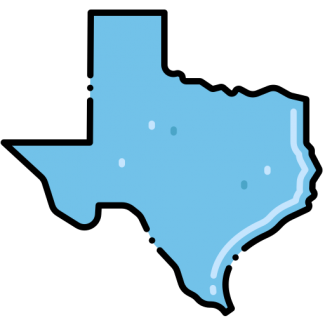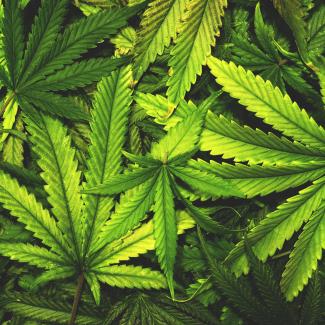1. Introduction
1.1. Short answer
If you’re on the fence about obtaining your medical marijuana card, or simply want to learn more about the pros and cons, we’ve got you covered. Below you will find an outline of the positive and negative aspects that come with being a medical marijuana patient. Regulations also tend to vary by location, so we’ve compiled informative details for each state which currently has an approved medical marijuana program.
2. Pros of a Medical Marijuana Card
Being a medical marijuana cardholder can come with a number of financial, legal, cultivation, health, and wellness benefits.
2.1. You are Legally Protected
Although public marijuana consumption is not currently federally permitted in any US state, if you are stopped by authorities in your home state and are in possession of medical marijuana, you will not face any legal consequences for purchasing your medicine from a state licensed dispensary, or for carrying an amount within the state’s legally defined purchase/possession limit. Make sure to always carry your up-to-date medical marijuana card on you when in possession of any medical cannabis products.
2.2. Marijuana is More Affordable
Since recreational marijuana is taxed at a higher rate, medical marijuana patients often pay less, or in some cases, incur no tax on their plant medicine. Currently, Washington state has the highest recreational marijuana tax in the country at 35%. Financially speaking, medical marijuana patients pay less overall for their cannabis products. Find more details on the difference in recreational vs. medical marijuana taxes for each US state by reading our guide here.
2.3. Higher Possession Limits
In the majority of states with medical marijuana programs, patients are generally allotted a larger possession/purchase/consumption limit when compared to recreational users. In some states, recreational use remains illegal entirely, and getting caught with cannabis could result in a fine or incarceration (jail time).
- Alaska
- Recreational purchase/possession - up to 1 ounce per day
- Medical purchase/possession - up to 1 ounce per day
- Arizona
- Medical possession - up to 2.5 ounces of usable marijuana
- Recreational possession - up to 1 ounce
- Arkansas
- Medical possession/purchasing - 2.5 ounces every 14 days
- Recreational adult-use not permitted
- California
- Medical possession - up to 8 ounces of dried cannabis
- Recreational possession - up to 28.5 grams
- Colorado
- Medical purchase/possession - 2 ounces per day total, up to 8g for concentrates, and up to 20,000 milligrams per day for edibles
- Recreational possession - up to 1 ounce total, 800 milligrams for edibles
- Connecticut
- Recreational possession - can carry up to 1.5 ounces, and have up to 5 ounces in a sealed container at a private residence
- Medical purchase/possession - 2.5 ounces per month (unless the patient has a pre-approved increase from their practitioner)
- Delaware
- Medical purchase/possession - 3 ounces of usable marijuana every 14 days, with up to 6 ounces per month
- Recreational use remains illegal
- Florida
- Medical purchase/possession - 4 ounce possession limit, and up to 2.5 ounces of smokable marijuana can be purchased within a 35-day period
- Recreational use remains illegal
- Regulate Florida legalization initiative to legalize recreational use available here
- Georgia
- Medical purchase/possession - 20 fluid ounces of “low THC oil”
- Recreational use remains illegal
- Guam
- Medical purchase/possession - 2.5 ounces
- Recreational possession - up to 1 ounce
- Hawaii
- Medical purchase/possession - up to 4 ounces
- Recreational use remains illegal
- Illinois
- Recreational use for Illinois residents - up to 30 grams of cannabis, 500 milligrams of THC infused products, 5 grams of cannabis concentrates
- Recreational use for non-residents - up to 15 grams of cannabis, 250 milligrams of THC infused products, 2.5 grams of cannabis concentrates
- Medical purchase/possession - 2.5 ounces every 14 days
- Iowa
- Medical purchase/possession - up to 4.5 grams of THC every 90 days, practitioners can also petition for an increased limit
- Recreational use remains illegal
- Louisiana
- Medical purchase/possession - 30-day supply of medical marijuana
- Recreational use remains illegal
- Maine
- Recreational possession - 2.5 ounces of marijuana, concentrates, or infused products combined, no more than 5 grams of concentrates
- Medical purchase/possession - 2.5 ounces of marijuana once a day
- Medical purchase/possession for visiting patients - 2.5 ounces of marijuana every 15 days
- Maryland
- Medical purchase/possession - a 30-day supply of up to 120 grams (4 ounces)
- Recreational use remains illegal
- Massachusetts
- Medical purchase/possession - a 60-day supply of up to 10 ounces
- Recreational purchase/possession - up to one ounce of flower + 5 grams of concentrates
- Michigan
- Recreational purchase/possession - up to 2.5 ounces (71 grams) of marijuana + up to 15 grams of concentrates
- Medical purchase/possession - up to 10 ounces
- Minnesota
- Medical purchase/possession - up to a 90-day supply
- Recreational use remains illegal
- Missouri
- Medical purchase/possession - up to 4 ounces of dried flower during a 30-day period (petitioning for increased allotment permitted)
- Recreational use remains illegal
- Montana
- Medical possession - up to 1 ounce of marijuana (or the equivalent in concentrates/edibles), purchase limit of up to 5 ounces per month
- Recreational purchase/possession - up to 1 ounce starting from January 1st, 2022
- Nevada
- Medical possession - up to 2.5 ounces of marijuana
- Recreational possession - up to 1 ounce of marijuana
- New Hampshire
- Medical possession - up to 2 ounces during a 10-day period
- Recreational use remains illegal
- New Jersey
- Medical purchase/possession - 3 ounces every 30 days (terminally ill patients have an unlimited amount)
- Recreational possession - up to 28.5 grams of marijuana and 8 grams of concentrates
- New Mexico
- Recreational possession - up to 2 ounces of marijuana (56 grams)
- Medical purchase/possession - up to 230 patient units or 8 ounces of dried flower during a 90-day period, 1 patient unit equals 1 gram of dried flower or 200 milligrams of THC in infused products
- New York
- Medical purchase/possession - up to a 60-day supply
- Recreational possession - up to 3 ounces of marijuana + 24 grams of concentrates
- North Dakota
- Medical purchase limit - up to 2.5 ounces (70.87 grams) of dried flower every 30 days
- Medical possession limit - up to 3 ounces (85.05 grams) of dried flowers/leaves
- Recreational use remains illegal
- Ohio
- Medical possession limit - up to a 90-day supply
- Recreational use remains illegal - petition for legalization currently in progress
- Oklahoma
- Medical possession limit - up to 3 ounces in public or 8 ounces at a private residence, 1 ounce of concentrates, 72 ounces of edibles
- Recreational use remains illegal
- Oregon
- Medical possession limit - up to 24 ounces of usable marijuana
- Recreational possession - up to 1 ounce in public or 8 ounces in a private residence
- Pennsylvania
- Medical purchase/possession limit - up to a 30-day supply
- Recreational use remains illegal
- Puerto Rico
- Medical purchase/possession limit - up to a 30-day supply
- Recreational use remains illegal
- Rhode Island
- Medical purchase/possession limit - up to 2.5 ounces
- Recreational use remains illegal
- South Dakota
- Medical purchase/possession limit - up to 3 ounces
- Recreational use remains illegal
- US Virgin Islands
- Medical purchase/possession limit - up to 4 ounces
- Recreational use remains illegal
- Utah
- Medical purchase/possession limit - up to a 30-day supply or 113 grams of unprocessed cannabis flower, up to 20 grams of composite THC in infused products
- Recreational use remains illegal
- Vermont
- Recreational possession - up to 1 ounce (28 grams)
- Medical possession limit - up to 2 ounces ((57 grams)
- Virginia
- Recreational possession - up to 1 ounce
- Medical purchase/possession limit - up to 4 ounces every 30-days
- Washington
- Recreational purchase/possession - up to 1 ounce of usable marijuana, 16 ounces of infused products in solid form, 72 ounces of infused product in liquid form, 7 grams of concentrates
- Medical purchase/possession - up to 3 ounces of usable marijuana, 48 ounces of infused product in solid form, 216 ounces of infused products in liquid form, 21 grams of concentrates
- Washington, DC
- Recreational possession - up to 2 ounces
- Medical possession - up to 2 ounces
- Medical purchase limit - up to 8 ounces during a rolling 30-day period
- West Virginia
- Recreational use remains illegal
- Medical possession - up to a 30-day supply
2.4. Higher Growing Limits
Depending on where you live, if you’re a medical marijuana patient located in select US states, you are legally permitted to exercise your green thumb by cultivating your own marijuana plants in a private residence (or through the assistance of a caregiver).
Currently marijuana home grow is permitted in: Alaska, Arizona, California, Colorado, Connecticut, Guam, Hawaii, Illinois, Maine, Massachusetts, Michigan, Missouri, Montana, Nevada, New Mexico, Oklahoma, Oregon, Rhode Island, South Dakota, US Virgin Islands, Vermont, Virginia, Washington, and Washington, DC.
Some states strictly only offer marijuana home cultivation to medical marijuana card holders. Make sure to double check by reading your state’s cultivation laws for more specifics on how you can grow within legal guidelines:
- Alaska
- Medical + recreational home grow - up to 6 marijuana plants (only 3 can be mature)
- Arizona
- Medical home grow - authorized patients may cultivate up to 12 marijuana plants
- Recreational home grow - up to 6 marijuana plants
- Arkansas
- No home grow permitted for medical or recreational
- California
- Recreational home grow - up to 6 marijuana plants
- Home cultivation laws vary by county
- Sacramento County - up to 6 marijuana plants for both recreational & medical marijuana
- Sonoma County - unlimited home cultivation for medical marijuana & up to 6 plants for recreational
- Colorado
- Recreational home grow - up to 6 marijuana plants (only 3 plants flowering)
- Check local laws for specific cultivation details (which vary my municipality)
- Colorado Springs - up to 12 plants total (only 6 mature) for recreational
- Denver - 12 plant limit per household
- Connecticut
- Medical home grow - up to 6 marijuana plants (3 mature / 3 immature plants)
- No home grow permitted for recreational use until July 1, 2023
- Delaware
- No home grow permitted for medical or recreational
- Florida
- No home grow permitted for medical or recreational
- Sign Regulate Florida’s legalization initiative to legalize home grow here
- Georgia
- No home grow permitted for medical or recreational
- Guam
- Recreational home grow - up to 6 marijuana plants (only 3 flowering + 3 immature plants)
- Medical home grow - up to 6 flowering and 12 immature plants for for qualified patients/caregivers with a cultivation permit (cost of $15)
- Hawaii
- Medical home grow - up to 10 plants at any stage of maturity, plants must be appropriately tagged following State of Hawaii’s Department of Health guidelines
- No home grow permitted for recreational use
- Illinois
- Medical home grow - up to 5 cannabis plants in a private residence
- No home grow permitted for recreational use
- Iowa
- No home grow permitted for medical or recreational
- Louisiana
- No home grow permitted for medical or recreational
- Maine
- Recreational home grow - up to three mature + 12 immature plants & unlimited seedlings
- Medical home grow - up to 6 mature + 12 immature marijuana plants + unlimited seedlings
- Maryland
- No home grow permitted for medical or recreational
- Massachusetts
- Recreational home grow - up to six plants at a private residence
- Medical home grow - up to 10 ounces of usable marijuana (a 60-day supply)
- Michigan
- Recreational home grow - up to 12 plants at a private residence
- Medical home grow - up to 12 plants at a private residence (must state intent to home grow on application)
- Minnesota
- No home grow permitted for medical or recreational
- Missouri
- Medical home grow - up to 6 flowering plants per patient (additional $100 for patient cultivation identification card)
- No home grow permitted for recreational use
- Montana
- Recreational home grow - up to 2 mature marijuana plants + 2 seedlings
- Medical home grow - up to 4 mature plants + 4 seedlings
- Nevada
- Recreational home grow - up to 6 plants (only if the individual lives over 25 miles away from a licensed dispensary)
- Medical home grow - up to 12 plants (only if the individual lives over 25 miles away from a licensed dispensary)
- New Hampshire
- No home grow permitted for medical or recreational
- New Jersey
- No home grow permitted for medical or recreational
- New Mexico
- Recreational home grow - up to 6 plants
- Medical home grow - up to 16 plants (maximum of four mature/flowering plants)
- New York
- Although both medical + recreational home grow is not legal as of yet, no later than 18 months after adult-use retail sales begin, the Office of Cannabis Management will begin to issue regulations regarding recreational cultivation. Proposed rules stand as the following: NY residents ages 21+ will be permitted to cultivate up to 6 plants (3 mature + 3 immature). Medical marijuana patients will be the first to be able to home grow with home cultivation initially restricted to patients only.
- North Dakota
- No home grow permitted for medical or recreational
- Ohio
- No home grow permitted for medical or recreational
- Oklahoma
- Medical home grow - up to 6 mature/flowering marijuana plants + 6 seedlings
- No home grow permitted for recreational
- Oregon
- Recreational home grow - up to 4 plants
- Medical home grow - up to 6 mature plants
- Pennsylvania
- No home grow permitted for medical or recreational
- Puerto Rico
- No home grow permitted for medical or recreational
- Rhode Island
- Recreational home grow - up to 6 plants in a private residence, or 12 plants in residences with more than 1 adult
- Medical home grow - up to 12 mature plants + 12 seedlings, must apply for plant tag certificates through the Department of Health
- South Dakota
- Medical home grow - up to 3 marijuana plants, must request cultivation permission in application, petition to grow more plants permitted with certification from physician
- No home grow permitted for recreational
- US Virgin Islands
- Medical home grow - up to 12 marijuana plants
- No home grow permitted for recreational
- Utah
- No home grow permitted for medical or recreational
- Vermont
- Recreational home grow - up to 2 mature plants + 4 immature plants
- Medical home grow - up to 2 mature plants + 7 immature plants
- Virginia
- Medical home grow - up to 4 plants per household
- Recreational home grow - up to 4 mature plants per household
- Washington
- No home grow permitted for recreational
- Medical home grow - up to 6 plants per person, maximum of 15 plants per household (patient’s healthcare practitioner can authorize increased home grow allotment of 15 plants per person)
- Washington, DC
- Medical + recreational home grow - up to 6 plants (maximum of three mature plants)
- West Virginia
- No home grow permitted for medical or recreational
3. Cons of a Medical Marijuana Card
3.1. You Can't Purchase a Firearm Legally
Under federal law, users of Schedule I substances such as cannabis, heroin, LSD, peyote, ecstasy, and meth, are prohibited from owning, possessing, purchasing, shipping, or receiving firearms + ammunition.
The Gun Control Act of 1968 prohibits drug users, felons, minors, and “mentally incompetent” individuals from having access to firearms. Violating this act can incur a fine or imprisonment of up to 10 years.
Before obtaining a firearm, individuals must complete a federal background check and fill out a form (ATF Form 4473) which asks for the applicant’s status on controlled substance usage.
Unfortunately, regardless of recreational or medical use status, marijuana users are federally prohibited from owning firearms + ammunition.
3.2. Driving Restrictions
Impaired driving while under the influence of marijuana is illegal in all US states. Anyone under the influence of cannabis is also restricted from using a Commercial Driving License (CDL). Disobeying these laws could result in a fine, a DUI (driving under the influence), jail time, or a revoked license. Drugged driving is treated as equal to drunk driving.
Some states have outright banned any amount of marijuana to be detected in the blood for drivers, but other states such as Nevada, have defined the legal limit of allowable marijuana in the blood.
- Alaska
- Driving high/while impaired may result in a DUI (driving under the influence) for both medical + recreational users
- Law enforcement may observe impairment level to determine DUI (driving under the influence) arrest
- Arizona
- Prohibits driving while under the influence of marijuana
- Arkansas
- Prohibits driving while under the influence of marijuana
- California
- Prohibits driving while under the influence of marijuana
- Colorado
- Impaired driving, defined as having 5 or more nanograms of THC per milliliter of blood, can lead to a DUI (driving under the influence)
- Connecticut
- It is illegal to drive while under the influence of marijuana (regardless of medical cardholder status)
- Delaware
- Reckless driving or driving while under the influence of medical marijuana can result in arrest or prosecution
- Florida
- Driving while under the influence of medical marijuana can result in arrest or DUI (driving under the influence)
- Georgia
- Driving while under the influence or being intoxicated by marijuana can result in an arrest or DUI (driving under the influence)
- Refusal of chemical testing (blood/urine/breathalyzer test) after arrest for impaired driving can result in 1 year driver’s license suspension
- Guam
- It is illegal to drive while under the influence of marijuana (regardless of medical cardholder status)
- Hawaii
- Do not drive while under the influence of marijuana (regardless of medical cardholder status)
- Illinois
- It is illegal to operate a motor vehicle while under the influence of marijuana (regardless of medical cardholder status)
- Violation of law can be constituted as DUI/Class A misdemeanor/felony
- Iowa
- It is illegal to operate a motor vehicle while under the influence of marijuana (regardless of medical cardholder status)
- Louisiana
- It is illegal to drive while under the influence of marijuana (regardless of medical cardholder status)
- Maine
- It is illegal to operate a motor vehicle while under the influence of marijuana or for the passenger/driver to use marijuana while in a vehicle (regardless of medical cardholder status)
- Violating this law may result in an OUI charge (operating while under the influence)
- Maryland
- It is illegal to operate a motor vehicle while under the influence of marijuana (regardless of medical cardholder status)
- If driver cannot pass a field sobriety test, they may be charged with a “marijuana DUI”
- Massachusetts
- Driving while under the influence of drugs (such as cannabis) could result in an OUI charge (operating while under the influence)
- Drugged driving charges rely heavily on visible impairment of the driver
- Michigan
- It is illegal to operate a motor vehicle, airplane, motorboat, recreational vehicle, or snowmobile while under the influence of marijuana
- It is illegal to consume marijuana while operating a motor vehicle, airplane, motorboat, recreational vehicle, or snowmobile
- Impairment will be based upon driving, a field sobriety test, and observations of driver’s mental/physical state
- Chemical test for drugs may be requested as next step
- Operating a vehicle while under the influence or marijuana is treated equally to a DUI (driving under the influence)
- Charges could include up to $500 in fines, a suspended license, up to 93 days of imprisonment, and others
- Minnesota
- Individuals with a Commercial Driver’s License (CDL) working in safety-sensitive transportation are prohibited from using medical marijuana
- Driving while under the influence of a controlled substance could result in an DWI charge (driving while intoxicated/impaired)
- Police officers will conduct field sobriety test + observe the driver’s mental/physical state to determine impairment
- Missouri
- Medical marijuana patients are not protected from Missouri state laws that prohibit operating a vehicle while under the influence of marijuana
- Driving while impaired could result in a DUI (driving under the influence) or DUID (driving under the influence of drugs) conviction
- Maximum 6 month jail sentence for first time conviction
- Montana
- Driving while being impaired by drugs is illegal
- Police officers, with reasonable cause for impairment, may apply for search warrant for individual to provide blood sample for a chemical drug test
- Blood tests with a delta-9-tetrahydrocannabinol level of 5 ng/ml or above may result in charges
- Nevada
- Legal limit of medical marijuana is up to 2 nanograms per milliliter in blood
- Driver must be capable of driving safely while under the influence of medical marijuana
- New Hampshire
- It is illegal to be under the influence of cannabis while operating a motor vehicle, boat, ATV (all-terrain vehicle), motorcycle, snowmobile, or heavy machinery
- New Jersey
- Medical marijuana patients may not be under the influence of cannabis while operating a motor vehicle, boat, ATV (all-terrain vehicle), train, motorcycle, snowmobile, heavy machinery, or vessel
- In New Jersey, it is illegal to be under the influence of drugs or alcohol while driving
- Police can also request for driver to provide blood/urine sample
- New Mexico
- It is illegal to be under the influence of cannabis while operating a motor vehicle
- Field sobriety tests are used to determine marijuana impairment
- New York
- Illegal to use marijuana while inside a motor vehicle
- Cannot drive while under the influence of THC
- Driving while impaired could result in DWAI (Driving While Ability Impaired By Drugs) charge
- Marijuana smell alone is not a justifiable cause to be pulled over
- North Dakota
- Potential incarceration for driving while high
- Ohio
- Prohibited levels of marijuana defined as 2 nanograms or above per millimeter of blood and 10 nanograms or above in urine
- Oklahoma
- Impaired driving could result in chemical test for marijuana metabolites in the system, any amount can result in DUI (driving under the influence)
- Oregon
- Noticeably impaired driving while under the influence of marijuana is illegal
- Pennsylvania
- Zero tolerance policy for driving with any amount of marijuana metabolites in blood (which can be detected even when not impaired)
- Puerto Rico
- Illegal to drive while under the influence of marijuana
- Rhode Island
- Registered medical marijuana patients will not be deemed “under the influence” solely based upon a chemical test with marijuana metabolites present in the blood
- South Dakota
- Potential DUI charge if operating a vehicle under the influence of cannabis
- US Virgin Islands
- Illegal to drive while under the influence of marijuana
- Utah
- Illegal to drive with any amount of controlled substances in the body
- Vermont
- DUI charge if driving under the influence of any drug which impairs ability to drive safely
- Virginia
- Unlawful to drive under the influence of cannabis to a degree that impairs ability to drive safely
- Washington
- Having five nanograms of THC per milliliter of blood or more is considered driving impaired
- Washington, DC
- Illegal to operate a motor vehicle while under the influence of drugs
- West Virginia
- Having three nanograms of THC per milliliter of blood or more will result in DUI charge
3.3. New Application + Renewal Fees For Adults, Minors, & Caregivers
Depending on where you live, the cost for registering with your state for a medical marijuana card can range from nothing to $350. Some states offer waived or reduced fees for patients who can show proof of low-income status. Please note that health insurance companies are not required to cover medical marijuana fees.
- Alaska
- First time application fee (non-refundable) - $25
- Renewal fee (if current card hasn’t expired) - $20
- Arizona
- Qualifying patient application fee - $150
- Supplemental Nutrition Assistance Program (SNAP) eligible qualifying patient application - $75
- Minor patient application (including caregiver) - $350
- SNAP eligible minor patient application (including caregiver) - $275
- Designated caregiver application - $200
- Arkansas
- Patient medical marijuana card application (non-refundable) - $50
- Caregiver medical marijuana card application (non-refundable) - $50
- Caregiver criminal background check (non-refundable) - $37
- Card renewal (non-refundable) - $50
- 30-day visiting patient card application - $50
- California
- Application fees vary by county but do not exceed $100
- 50% off application fee if using Medi-Cal healthcare
- Application fee is waived for medically-indigent service program participants
- Colorado
- Application fee for adults / minors / legal representatives - $25
- Connecticut
- Qualifying adult patient registration fee - $100
- Primary caregiver registration fee - $25
- Delaware
- Application fee for adults / minors / caregivers (non-refundable) - $50
- Patients with a gross household income at or below 138% of the poverty level can apply for a low income charge request for their application - $25
- Replacement fee for medical marijuana cards - $20
- Florida
- Application processing fee - $75 + $2.75 convenience fee for online payments
- Change / replace / surrender card fee - $15
- Payment can be made online through credit cards, debit cards, or e-checks
- Georgia
- Low THC Oil Patient Registry card - $25
- Valid for two years
- Guam
- Qualified patient initial fee - $15
- Qualified patient renewal fee - $10
- Qualified patient replacement fee - $10
- Qualified patient late fee - $5
- Primary/designated caregiver initial fee - $100
- Primary/designated caregiver renewal fee - $75
- Primary/designated caregiver replacement fee - $10
- Primary/designated caregiver late fee - $5
- Hawaii
- In-state 1 year application fee - $38.50
- In-state 2 year renewal fee - $77
- Out-of-state application fee (for 60 day term) - $49.50
- Out-of-state residents are allowed up to 2 terms in 1 calendar year
- Illinois
- Regular qualifying patient application fee (1 year term) - $50
- Regular qualifying patient application fee (2 year term) - $100
- Regular qualifying patient application fee (3 year term) - $125
- Reduced fee qualifying patient application (1 year term) - $25
- Reduced fee qualifying patient application (2 year term) - $50
- Reduced fee qualifying patient application (3 year term) - $75
- Minor qualifying patient application fee (1 year term) - $50
- Minor qualifying patient application fee(2 year term) - $100
- Minor qualifying patient application fee (3 year term) - $125
- Designated caregiver fee (1 year term) - $25
- Designated caregiver fee (2 year term) - $50
- Designated caregiver fee (3 year term) - $75
- Regular qualifying patient application with one caregiver (1 year term) - $75
- Regular qualifying patient application with one caregiver (2 year term) - $150
- Regular qualifying patient application with one caregiver (3 year term) - $200
- Regular qualifying patient application with two caregivers (1 year term) - $100
- Regular qualifying patient application with two caregivers (2 year term) - $200
- Regular qualifying patient application with two caregivers (3 year term) - $275
- Regular qualifying patient application with three caregivers (1 year term) - $125
- Regular qualifying patient application with three caregivers (2 year term) - $250
- Regular qualifying patient application with three caregivers (3 year term) - $350
- Regular qualifying patient reduced fee application with one caregiver (1 year term) - $50
- Regular qualifying patient reduced fee application with one caregiver (2 year term) - $100
- Regular qualifying patient reduced fee application with one caregiver (3 year term) - $150
- Regular qualifying patient reduced fee application with two caregivers (1 year term) - $75
- Regular qualifying patient reduced fee application with two caregivers (2 year term) - $150
- Regular qualifying patient reduced fee application with two caregivers (3 year term) - $225
- Regular qualifying patient reduced fee application with three caregivers (1 year term) - $100
- Regular qualifying patient reduced fee application with three caregivers (2 year term) - $200
- Regular qualifying patient reduced fee application with three caregivers (3 year term) - $300
- Iowa
- Medical cannabidiol registration card fee - $100
- Reduced fee for eligible patients available
- Louisiana
- State registration fee - $75
- Maine
- Lost/stolen/damaged/change of information card fee - $10
- Maryland
- New qualifying patient application fee (non-refundable) - $50
- Qualifying patient renewal application fee (non-refundable) - $50
- Expiration date of card extended to 3 years (if purchased after 01/01/2019)
- Massachusetts
- Registering with the commission is 100% free of charge for all patients, including minors and caregivers. You will need a doctor’s recommendation in order to apply.
- Michigan
- Patient only registry card application fee - $40
- Patient only registry card renewal application fee - $40
- 90 day renewal period
- Minnesota
- Medical cannabis annual registration fee - $200
- Medical cannabis annual registration reduced fee - $50
- Reduced fee eligible for those who receive Veterans disability benefits, VA dependency + indemnity compensation, IHS, Railroad disability, MinnesotaCare, medical assistance, Social Security Disability, or Supplemental Security Income (must provide evidence)
- More detailed on the reduced fee can be found here
- Credit, debit, or check accepted
- Criminal background check required for caregivers - $15 paid by check
- Missouri
- All patient, caregiver, and patient cultivator licenses valid for 1 year
- Renewal applications can be submitted up to 60 days prior the expiration date (listed on license)
- New patient application - $25.94
- Patient renewal application - $25.94
- New caregiver application - $25.94
- Caregiver renewal application - $25.94
- New patient cultivator application - $103.73
- Patient cultivator renewal application - $103.73
- Fees must be paid through the Missouri Medical Marijuana Registry Portal
- Montana
- Registered cardholder card application fee - $30
- Replacement card - $10
- Nevada
- No fee for change/update/lost medical marijuana card request
- 1-year registration term - $50
- 2-year registration term - $100
- New Hampshire
- Patient / Minor / Guardianship patient application fee - $50
- Caregiver application is free
- New Jersey
- Identification card registration fee - $100
- Reduced fee available for senior citizens (ages 65+), military veterans (DD-214 form required), Social Security Disability (SSD), Supplemental Security Income (SSI), NJ Supplemental Nutrition Assistance Program (SNAP), NJ Medicaid, NJ Temporary Disability Benefits, Medicare (under age 65) - $20
- New Mexico
- No charge for patient + caregiver information change/replacement card form
- No charge to apply for or renew patient ID card
- No charge for a primary caregiver ID card
- New York
- No fee for patient or caregiver registration
- North Dakota
- Adult / minor application fee (non-refundable) - $50
- Application fees for minors may be waived if parent or legal guardian is applicant’s registered designated caregiver and the applicant resides with the registered designated caregiver
- No application fee for caregivers
- Lost card replacement (cardholder) - $25
- Name change or other replacement reason - $5
- Ohio
- Annual patient registration fee - $50
- Annual caregiver registration fee - $25
- Patients with indigent or veteran status may qualify for 50% off fees
- Oklahoma
- Adult / minor patient application fee (non-refundable) - $100
- Applicant fee for adult or minor patients with proof of Medicaid / Medicare / disabled Veteran status - $20
- No cost for caregiver application
- Oregon
- Basic patient application fee - $200
- Supplemental Nutrition Assistance Program (SNAP) reduced application fee - $60
- Oregon Health Plan (OHP) reduced application fee - $50
- Supplemental Security Income (SSI) reduced application fee - $20
- Veteran reduced application fee - $50
- Pennsylvania
- Patient or caregiver medical marijuana ID card - $50
- Discounted medical marijuana ID card available for patients using Medicaid, PACE/PACENET, CHIP, SNAP or WIC
- Puerto Rico
- Application fee - $25
- Rhode Island
- Reduced application fee available for caregivers / patients with Federal Railroad Disability benefits, Veterans' Disabilities, Medicaid, Social Security Disability Income (SSDI), or Supplemental Security Income (SSI) - $25
- Patient application fee (non-refundable) - $50
- Caregiver application fee - $100
- Patient information change form - $10
- South Dakota
- Optional home cultivation of medical marijuana fee (non-refundable) - $20
- Application fee (non-refundable) - $75
- Application fee for low-income patients (non-refundable) - $20
- Additional caregiver fee after the primary caregiver (non-refundable) -
- Paypal transaction + convenience fee - 3.49% + $0.49 cents
- US Virgin Islands
- Resident patient application fee - $50
- Non-resident temporary 5 day medical marijuana card - $50
- Non-resident temporary 10 day medical marijuana card - $75
- Non-resident temporary 30 day medical marijuana card - $100
- Utah
- Initial patient card - $15
- First 90 day patient card renewal - $5
- Six month patient card renewal - $15
- Initial guardian card - $68.25
- Six month guardian card renewal - $24
- Initial caregiver card - $68.25
- Six month caregiver card renewal - $14
- Non-Utah resident card (initial + renewal) - $15
- Vermont
- Initial + renewal application fee (non-refundable) - $50
- Registry card replacement (for changes, if lost, or stolen) - $25
- Virginia
- Initial patient registration fee - $50
- Annual patient renewal fee - $50
- Parent/legal guardian initial registration fee - $25
- Parent/legal guardian annual renewal fee - $25
- Washington
- Adult patient medical marijuana card fee - $1
- Please note retail stores may charge more than $1 for the card
- Average card costs are estimated to range from $1 to $10
- Washington, DC
- Standard new patient registration - $100
- Reduced fee new patient registration - $25
- Standard renewal registration fee - $100
- Reduced fee renewal registration - $25
- Standard replacement card fee - $90
- Reduced fee replacement card - $20
- ID valid for one year from date of issuance
- Reduced fee applicants must show proof of gross income, Medicaid, or DC Alliance
- West Virginia
- Financial hardship waiver available for patients with proof of household income up to 200% of the federal poverty level - no cost for application
- Adult / minor / caregiver application fee - $50
3.4. Employment
Unfortunately, in some states, medical marijuana patients are not protected from discrimination in the workplace. Organizations often have the right to dictate their own drug policies. For state specific laws, find more details below.
- Alaska
- Employers are not required to accommodate medical/recreational marijuana users and can drug test/make employment decisions based on test results
- Exemptions to this rule can sometimes be made (but depend on the employer) for FDA-approved marijuana-derived medications such as dronabinol, purified cannabidiol, nabilone, and Sativex®
- Click here for more information
- Arizona
- According to the Arizona Medical Marijuana Act, employers may not discriminate against medical marijuana cardholders if they test positive for marijuana-use
- Although employers are permitted to terminate or take disciplinary action against employees who are impaired by marijuana during work hours
- Arkansas
- The Arkansas Constitution states that employers cannot discriminate against, fire, or decline to hire medical marijuana cardholders for positions that are not safety-sensitive
- Employers cannot fire medical marijuana cardholders in non-safety-sensitive positions for using medical marijuana outside of work
- Employers can decline to hire medical marijuana cardholders for safety-sensitive positions such as truck driving
- Violations of the above laws for companies with more than 500 employees could incur a fine of $300,000 per person
- California
- Employers are entitled to main drug-free workplaces, and are not required to accommodate medical/recreational marijuana users
- Colorado
- Employers are entitled to main drug-free workplaces, and are not required to accommodate medical/recreational marijuana users
- Connecticut
- Employers cannot discriminate against, fire, or decline to hire individuals based on their status as a qualifying medical marijuana patient or caregiver or for using medical marijuana outside of work
- Employers are permitted to terminate or take disciplinary action against employees who are impaired by marijuana during work hours and are entitled to a drug-free workplace
- Delaware
- The Delaware Medical Marijuana Act states that employers cannot discriminate against, fire, or decline to hire individuals based on their status as a qualifying medical marijuana patient
- Employers are permitted to terminate or take disciplinary action against employees who are impaired by marijuana during work hours and are entitled to a drug-free workplace
- Florida
- Employers are entitled to main drug-free workplaces, and are not required to accommodate medical marijuana users
- Georgia
- Employers are entitled to main drug-free workplaces, and are not required to accommodate medical marijuana users
- Guam
- Employers are entitled to main drug-free workplaces, and are not required to accommodate medical marijuana users
- Hawaii
- Employers are entitled to main drug-free workplaces, and are not required to accommodate medical marijuana users
- Illinois
- Employers cannot discriminate against individuals solely based on their status as a qualifying medical marijuana patient or caregiver
- Iowa
- Employers are entitled to main drug-free workplaces, and are not required to accommodate medical marijuana users
- Louisiana
- Employers are entitled to main drug-free workplaces, and are not required to accommodate medical marijuana users
- Maine
- Employers cannot discriminate against individuals solely based on their status as a qualifying medical marijuana patient or caregiver
- Employers cannot discriminate against individuals who choose to legally use cannabis outside of the workplace
- Maryland
- Employers are entitled to main drug-free workplaces, and are not required to accommodate medical marijuana users
- Massachusetts
- Unless presenting an undue hardship to the company, employers are expected to make disability accommodations for those using medical marijuana to treat a disability while off-duty
- Michigan
- Employers are entitled to main drug-free workplaces, and are not required to accommodate medical marijuana users
- Minnesota
- Employers cannot discriminate against individuals solely based on their status as a qualifying medical marijuana patient or caregiver, or for having a positive drug test for marijuana
- Employers are entitled to prohibit marijuana use during work hours or on company property
- Missouri
- Employers are entitled to main drug-free workplaces, and are not required to accommodate medical marijuana users
- Montana
- Employers are entitled to main drug-free workplaces, and are not required to accommodate medical marijuana users
- Nevada
- Employers must try to make reasonable accommodations for qualifying medical marijuana cardholders as long as the accommodations do not pose a safety threat, cause hardship for the company, or prohibit the qualifying individual from fulfilling their job requirements
- Employers are not required to allow medical marijuana use in the workplace
- New Hampshire
- Employers are entitled to main drug-free workplaces, and are not required to accommodate medical marijuana users
- New Jersey
- Employers are entitled to main drug-free workplaces, and are not required to accommodate medical marijuana users
- New Mexico
- Employers are entitled to main drug-free workplaces, and are not required to accommodate medical marijuana users
- New York
- Employers cannot discriminate against individuals solely based on their status as a qualifying medical marijuana patient or caregiver, or for having a positive drug test for marijuana
- Employers cannot discriminate against legal recreational marijuana use by adults 21+ outside the workplace
- Employers maintain the right to prohibit marijuana use during work hours
- North Dakota
- Employers are entitled to main drug-free workplaces, and are not required to accommodate medical marijuana users
- Ohio
- Employers are entitled to main drug-free workplaces, and are not required to accommodate medical marijuana users
- Oklahoma
- Employers cannot discriminate against individuals solely based on their status as a qualifying medical marijuana patient or caregiver, or for having a positive drug test for marijuana (excluding safety-sensitive jobs)
- Oregon
- Employers are entitled to main drug-free workplaces, and are not required to accommodate medical marijuana users
- Pennsylvania
- The Pennsylvania Medical Marijuana Act prohibits employers from discriminating against individuals solely based on their status as a qualifying medical marijuana patient
- Puerto Rico
- Law 15-2021 prohibits employers from discriminating against individuals solely based on their status as a qualifying medical marijuana patient
- Rhode Island
- Employers cannot discriminate against individuals solely based on their status as a qualifying medical marijuana patient or for having a positive drug test for marijuana
- South Dakota
- Medical marijuana patients must be “afforded that same rights” that an employee using prescription medication would have, which also applies to workplace drug testing
- Utah
- The Utah Medical Cannabis Act states that public sector employees cannot discriminate qualifying medical marijuana patients based on a positive drug test for marijuana unless they were impaired while on the job
- Private sector employers are entitled to main drug-free workplaces, and are not required to accommodate medical marijuana users
- Vermont
- Employers are entitled to main drug-free workplaces, and are not required to accommodate medical marijuana users
- Virginia
- Employers cannot discriminate against, fire, discipline, or decline to hire individuals based on their status as a qualifying medical marijuana patient or for legally using cannabis oil
- Washington
- Employers are entitled to main drug-free workplaces, and are not required to accommodate medical marijuana users
- Washington, DC
- Employers are entitled to main drug-free workplaces, and are not required to accommodate medical marijuana users
- West Virginia
- Employers cannot discriminate against, fire, discipline, or decline to hire individuals based on their status as a qualifying medical marijuana patient
3.5 Federally Subsidized Housing
You cannot participate in marijuana cultivation if you live in federally subsidized housing. Violating these rules could result in the loss of federally subsidized housing.
4. Conclusion
Depending on your unique situation, it’s important to weigh the pros and cons of obtaining a medical marijuana card.
If you are interested in obtaining a medical marijuana card in Florida or simply have any questions about the process, email info@marijuanadoctor.com, call (844) 442-0362, or book your in-person appointment online at marijuanadoctor.com.
Marijuana Doctor also offers telemedicine services in Connecticut, Louisiana, Missouri, New York, Ohio, Oklahoma, Pennsylvania, and Texas. Our appointments are risk-free: if you don’t qualify for medical marijuana, you don’t have to pay!
DISCLAIMER
The article is intended for educational purposes & contains only general information regarding legal issues surrounding marijuana. This is not legal advice, is not intended to serve as legal advice, & should not be treated as such.




